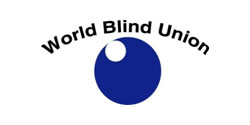
Last week the copyright committee of the World Intellectual Property Organisation (SCCR) made great progress towards a law to improve access to books for blind and other print disabled people.
At the Geneva meeting, countries as diverse as Argentina, Brazil, the EU, and the USA, supported a draft document which could form the basis of a treaty, giving exceptions to copyright so that print disabled people can make and share accessible books.
Maryanne Diamond, World Blind Union President, attended the Committee and said afterwards:
"I am delighted at the progress made at this meeting. The new draft text provides the Committee with a good basis for completing its work on a treaty. A new law would help us end the "book famine" in which only 5% of books are made available in accessible formats such as large print, audio or braille. I urge government members of the Committee to finalise their work on this treaty by the end of this year and to call a diplomatic conference to make the new law a reality."
The next SCCR meeting takes place in November 2011. It is expected to finalise the draft text, and to decide on how and when it will become law. The World Blind Union will be there to help ensure the momentum towards this ground-breaking treaty is maintained.
About the campaign
The problem we are trying to solve
Even in 2011, people living with a print disability still have very limited access to books and other published works. Only some 5% of published books are ever made accessible in richer countries, and less than 1% in poorer ones. WBU calls this a "book famine".
Increasingly, affordable and rapidly developing technology such as e-books is becoming accessible to print disabled people. This digital revolution ought to help end the book famine by allowing us to share accessible books worldwide.
However, copyright law has not changed in line with the technology. Often copyright law prevents both the making of accessible books at national level and the sharing of them across national borders.
Why do we need a treaty?
A treaty would remove these copyright barriers. The World Blind Union (WBU) has for some years been calling for governments at the World Intellectual Property Organisation (WIPO) to agree an international treaty to allow more accessible books to made and sent across borders in formats such as large print, audio, braille or Daisy.
Brazil, Ecuador and Paraguay tabled a WBU proposal for such a treaty in May 2009.
There are several reasons, but here are the main two:
- Only one third of the world's countries have a national exception to copyright law to allow the making and distribution of accessible format books. All countries need such an exception because publishers often fail to help by making their books accessible or authorising specialist organisations to do so. The treaty would create such exceptions.
- The national nature of copyright law prevents the import and export of accessible books. The treaty would remove this legal barrier to sharing resources across borders. That would allow many hundreds of thousands of books to circulate between blind people's organisations in different countries.










